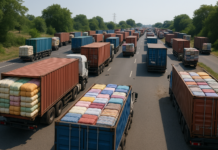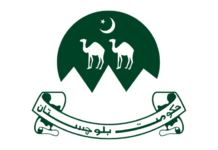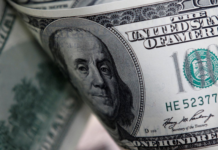When the China Pakistan Free Trade Agreement (CPFTA) was signed back in November 2006, one of its stated objectives was to “provide fair conditions of competition for trade” between the two countries. Since then the agreement has been renegotiated substantially via a process that began in 2011 leading to the signing of a protocol in April 2019 that changed duty structure, country of origin rules as well as range of goods impacted and mechanisms for arbitration of disputes.
But the objectives remained the same. The idea was that through duty exemptions there should be an acceleration in trade between both countries by making this trade more profitable. More profits made by companies in Pakistan would mean more taxes for the state, since these profits are taxed. It would also promote greater competition within Pakistan as companies used their increased profitability to gain more market share. And for listed companies, rising profits would mean greater benefits for shareholders in Pakistan.
But that is not how things seem to be working out in the oil marketing sector. It has now been two years since the terms of the revised CPFTA went into effect, through an SRO issued by the Federal Board of Revenue that activated the reduced duties applicable on 6786 goods. One such item that has been exempted from custom duties is fuel from China which includes Motor Gasoline, HOBC and diesel. And private oil companies in Pakistan availed the benefits substantially.
In the year 2021, for example, petrol imports from China accounted for 16 percent of the total motor gasoline imports. In the years before the CPFTA II went into effect, this proportion was close to zero. In effect, 2021 was the first full year of fuel imports from China, a fact that leaves many surprised considering that China is itself a net importer of fuel, despite being the world’s fourth largest producer of oil. 2021 was also the first full year of fuel imports from China since the previous year saw severe disruptions across the economy due to the lockdowns, that effected fuel imports as well. Shell’s gross margin in the nine month period running from January to September, for example, leapt from less than 3 percent in 2020 to almost 8 percent in 2021, probably the largest margin recovery in Pakistan’s OMC sector. Next in line was Attock Petroleum, whose gross margin went from less than 1.81pc to 5.29pc in the same period, followed by PSO that went from less than 1pc to 4.36pc. But it is hard to say how much of this recovery was due to its fuel imports from China because lubricants also make up a large portion of the sales of some of these companies, especially Shell.
Oil company executives involved in this trade say some of the benefit from duty exemption from the CPFTA II is eaten up by higher freight costs, given the longer distance vessels have to travel from China compared to ports in the middle east, and some of it is taken by the supplier, who often charges a premium from Pakistani buyers knowing that they will be availing an advantage on custom duty exemption. “On net, importing petrol from China yields us a benefit of $1.5 to $2 per barrel” one insider from a local OMC tells Profit, pointing out that much of the duty benefit is whittled down by the time the product lands at a Pakistani port.
Others paint a different picture. One insider tells Profit that OMCs are pocketing much of the benefit through practices like transfer pricing and over invoicing as a means to overcome hurdles faced while repatriating profits, but there is no concrete data to support this claim. Practices like transfer pricing and over invoicing are common around the world but they are notoriously difficult to catch, even for governments and regulators with their access to detailed and granular information from companies and ports.
OMC sources tell Profit that they are finding it harder to repatriate dividends and royalties as administrative hurdles mount in an effort to contain erosion of foreign exchange reserves. One source alleges that the 10% the OMCs are saving through importing fuel from China is transfer priced among the buyer and the trading company. Repatriating money, i.e. sending money out of the country remains difficult, however, through transfer pricing, the money doesn’t enter the country to begin with.
What is not difficult to see, however, is that in the oil marketing sector the benefits from duty exemption do not reach the people, nor the government which has to forego substantial amounts in customs duty recovery but it is doubtful that they recover anything similar through tax on profits. Rather the benefits are divided up among the various players in the oil supply chain, from traders and other suppliers to the OMCs, buoying their margins and creating opportunities for accumulating a portion of the resultant profit outside the country, where it cannot be taxed.
Oil marketing is a low margin, high volume business in which money is made on cents. “Even a five cent difference in the price from one cargo to another can yield large differences in price” says an oil company executive who only spoke on condition that his name will not be used. So even a $2 difference per barrel is in fact a very large margin.
One company stands out in particular: Shell Pakistan Ltd. More than 80 percent of the petrol imported by Shell in 2021 came from China, by both volume and value, according to data from Karachi’s two ports obtained by Profit. It may be the towering giant in these figures, but Shell is by no means the only company that availed itself of the benefits of the CPFTA II in 2021. Data of petrol imports at Karachi’s two ports available with Profit shows other companies such as Be Energy, Gas and Oil Ltd, Attock Petroleum and Hascol also imported substantial quantities of petrol from China in the same year, although the total amounts, or even the proportion of Chinese imports in their total imports, were nowhere near what they were for Shell (see graphic).
Rising imports from China were not the only large development rolling through the year 2021. As the government wrestled with the terms for resumption of the IMF program all year, oil pricing and specifically recovery of larger amounts in tax and levy from fuels loomed large on its agenda. In the budget announced in June, the government budgeted a whopping Rs610 billion as collection from the Petroleum Development Levy but implementation of this was stopped once global oil prices rises had to be passed through to consumers. In July the weighted average cost of supply of one litre of petrol for the OMCs was Rs86, which rose to Rs108 by December. The hit to the consumer was massive, as the price at the pump rose from Rs112 to Rs140 by mid December.
Along the way the clamour from OMCs and their dealers for raising their margins in the price build up also rose as inflation ate into their cost of doing business. The OMC margin had already been revised upward by 5.7 percent in March but as inflation powered on the clamour for another substantial hike mounted. In early December dealers announced a strike to pressure the government but the OMCs backed out of participation, announcing that their company operated pumps will remain open. The government yielded within days and allowed a further 31 percent increase in OMC margins, less than what the companies had asked for, but a large hike nonetheless.
Price pressures in the oil supply chain mounted throughout the year, sending the retail price of petrol to record highs of Rs145 and bringing the government under intense criticism. Meanwhile OMCs increased their reliance on imports from China. Data from the ports shows in the month of March just under 231 million litres of petrol was imported from China. In October this figure rose to slightly above 422 million. Oil sector insiders tell Profit that fuel imports from China picked up pace after July when the government raised customs duties on petrol to 10pc (from 7.5pc) in the budget for FY2022. This gave Chinese imports an edge since they were exempted from the duty.
What does the CPFTA have to do with OMCs?
OMCs can import fuel from China through the CPFTA without having to pay any custom duties. From all other countries Tte custom duties payable on the import of fuels is 10%. This means when an OMC imports from China they save out on 10% of the cost that they would have naturally paid had they imported from any other country.
This FTA was essentially put into place so that consumers like you and me get cheaper products and firms have better margins, enjoy higher profits which the state can then tax and their shareholders can share via higher dividends. But this is not how it seems to be working out in reality.
The prices of fuel in the country are decided based on the average price available through Platts plus PSO’s premium. The weighted average cost of supply is calculated by OGRA, the oil sector regulator every fortnight the cost build up for the marketing companies is then applied to this average to include margins for OMCs and inland freight equalization, commissions for the dealers, petroleum development levy and so on. The retail price is set by the regulator in this way. OMCs can make their money from the margin allowed to them in the cost build up, or by hunting down sources of supply cheaper than the weighted average cost calculated by the regulator using data from PSO and Platts.
S&P Global Platts is the leading independent provider of information and benchmark prices for the commodities and energy markets. Platts is a price benchmark service for the oil industry. PSO premium is easy to obtain considering PSO, being the State owned OMC, procures its fuels through competitive tenders. PSO goes through the process of posting tenders for suppliers, accepts bids, and chooses the bids for Pakistan’s supply of petrol.
This is where the Chinese imports come in. Their landed value is higher than fuels bought from ports nearer to Pakistan, which is why PSO finds it hard to use this source because they have to follow PPRA rules and give their bids to the lowest bidder. But a private OMC can buy from China, pay the higher landed cost, and recover its money from the duty exemption under the CPFTA II. How much they save will vary from one cargo to the next. But if there is a cargo in which the saving is large, the temptation to keep part of that saving abroad where it will not be taxable by Pakistani authorities, opens up before the importer.
PSO has a single stage two envelope procedure for bidding which is being followed for import tenders as per PPRA Rules Clause 36(b). The technical bids are opened and technically evaluated as per the evaluation criteria laid down in the tender documents. The Commercial bids of only the technically qualified bidders are opened in the presence of bidders.
The Commercial bids of those bidders are returned unopened who do not qualify in the technical evaluation. It is not necessary for a bidder to own a refinery. Globally, the oil industry operates through traders which may or may not be backed by a refining business. Generally, these traders/suppliers operate independently and almost every refinery has their trading arm or marketing business units. PSO does not restrict or put any conditions as it follows an open competitive bidding procedure as per PPRA rules in order to encourage healthy competition.
PSO procures High Speed Diesel on a long term agreement with Kuwait Petroleum Corporation (which is a Government entity of the state of Kuwait). This Agreement has been in place since the last forty years and initially it was handled by the Government of Pakistan and in the year 2000 it was handed over to PSO.
What all this means is that the price at which an OMC other than PSO procures fuel at, doesn’t have anything to do with the fuel prices you get.
What does this mean for a common citizen?
Essentially, if you’re a common citizen, you don’t reap the benefits of the CPFTA when it comes to fuel unless its PSO that is procuring from China. The price benefit simply isn’t passed onto you.
While speaking to Profit, OGRA spokesperson stated, “The prices of petroleum products are worked out on the basis of import incidentals, including duties/taxes paid by PSO as per the policy of the Federal Government. Therefore, any MOGAS/HSD imported from China by PSO and waiver of customs duty granted by FBR on it is passed on to the consumers automatically.”
“As explained above, if the PSO imports the cargoes under FTA, the benefit of reduced prices will automatically be passed on to the consumer. However, only when PSO does not import China-origin fuel and prices are set on full duty basis, and if other OMC’s import china-origin fuel and enjoy duty waiver, then there is no mechanism in the pricing formula to ensure that the customs duty waiver is passed on to the consumer. Being a policy issue, the Federal Government has to advise the policy guidelines in the matter to OGRA.”
FBR collections are also lower which may result in additional taxes for you too.
However, the very fact that the quantum of trade of fuel from China has increased has resulted in the prices of cargoes to go up. A source explains, “the Chinese can see that there is a greater demand for fuel from China. They have picked this up and adjusted their prices in accordance. However, despite that, OMCs are willing to import from China in order to make internal adjustments through the 10% margin they now get.” As a result, OMCs are allegedly paying more for fuel from China, than they would have had they procured from anywhere else.
This has added pressure onto the rupee as more foreign exchange is going out of the country. The flipside for this, however, is the fact that had OMCs been able to repatriate dividends, the same outflow would have happened. However, that would have earned taxes for the country. This doesn’t.
Profit has reached out to Shell for a response. They have declined to respond.


























Excellent article.
Hi
Good information
Kindly visit my website i have thousands of free SVG files and free theme, Plugins
freesvg.uk
Extra ordinary research
This is very good work!
Hi. Magnificent job. I did not expect this on a friday night. This is a terrific story. Thanks!